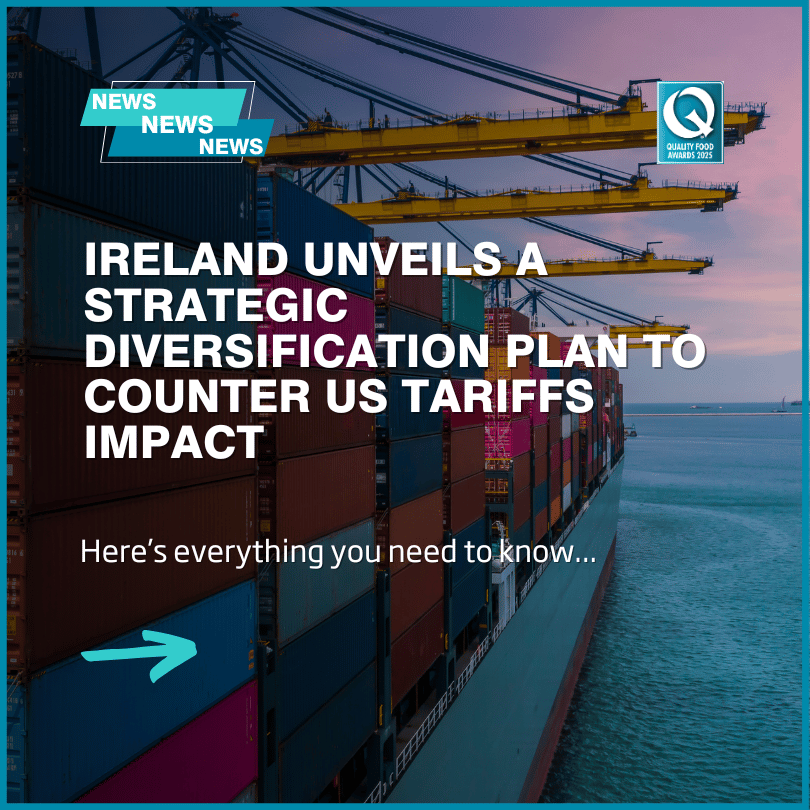
Ireland unveils a strategic diversification plan to counter US tariffs impact
The Irish Government has announced a comprehensive diversification strategy, backed by €3.6 billion, to support exporters and mitigate the effects of new US tariffs amid global trade uncertainties.
The Irish Government has unveiled a comprehensive market diversification strategy aimed at mitigating the impact of new US tariffs on Irish exporters. This action plan, developed jointly by the Departments of Enterprise and Foreign Affairs, seeks to provide targeted support to firms affected by a recent EU-US trade agreement that imposes a 15 per cent tariff on most EU exports to the US. The levy is seen as particularly detrimental to Ireland's food and drink sector, a key component of the country's export economy.
Minister for Enterprise, Tourism and Employment Peter Burke described the plan as a necessary response to the "huge uncertainty" characterising the global trade environment, with Ireland’s status as a small, export-led economy making it especially vulnerable. He cautioned, however, that the initiative should not be viewed as a retreat from the US market, which remains Ireland's largest trading partner, accounting for 30 per cent of the State’s total trade in goods and services.
Central to the government’s approach is a €3.6 billion budget allocation within the revamped National Development Plan, including an additional €600 million, to fund the 100-point action plan. Enterprise Ireland, the state agency tasked with supporting indigenous businesses, will offer grants for market research of up to €35,000, allowing companies to assess tariff impacts and devise mitigation strategies. More substantial assistance in the form of new markets validation grants, up to €150,000, will be available to support companies developing market entry strategies for alternative destinations or new product lines.
The government also plans to review its entire incentives framework, including grants and tax supports, to help businesses adapt to the changing trade landscape. One notable element of the diversification strategy is the creation of a "strategic air access fund" designed to facilitate new long-haul air routes into and out of Ireland. This would improve connectivity to emerging markets and accelerate entry for Irish exporters. Efforts to streamline visa and migration processes further aim to bolster trade and business opportunities by facilitating mobility.
While the US tariffs present a significant challenge, with Enterprise Ireland estimating that roughly 450 of its 950 US-exporting client companies will be severely affected, Minister Burke insisted the government will maintain its planned spending. Finance Minister Paschal Donohoe reaffirmed this stance amid the Summer Economic Statement, announcing that the upcoming budget would be framed around a substantial €9.4 billion package of spending and tax measures, even as growth projections may need revisiting due to shifting export market dynamics.
This governmental push towards diversification is part of a broader, multi-faceted response to the tariffs crisis. Earlier plans include accelerating the ratification of the Comprehensive Economic and Trade Agreement (Ceta) with Canada, alongside efforts to cultivate stronger trade ties with key Asian markets such as China, India, Japan, and the United Arab Emirates. Joint economic commissions with these countries are being considered to facilitate trade and investment flows, with Irish State agencies like Enterprise Ireland and Bord Bia being repositioned to support diversification.
The need for diversification also reflects broader concerns over Ireland's economic dependence on US multinational corporations. Heavy reliance on foreign direct investment from global giants in sectors like pharmaceuticals and technology has long been a pillar of Ireland’s economic success but also a source of vulnerability. Recent tariffs on pharmaceuticals, for instance, could jeopardise a significant segment of export earnings valued at around €58 billion annually. Experts stress that without urgent reforms in infrastructure, competitiveness, and fiscal policy, Ireland risks undermining its hard-won prosperity if it continues to rely heavily on these multinationals.
Despite the uncertainty and challenges, Minister Burke emphasised Ireland’s commitment to open global markets, underpinned by free trade and investment flows. The government’s strategy aims to ensure Irish businesses remain agile and well-positioned to navigate evolving global trade patterns, whether through expanding into emerging markets or strengthening existing ties. The announcement aligns with wider EU efforts to negotiate constructively with the US while remaining ready to take proportionate countermeasures if necessary, signalling a complex balancing act between protection and engagement.
In summary, Ireland’s latest market diversification strategy represents a decisive and wide-ranging effort to alleviate the impact of US tariffs by supporting exporters in identifying and entering new markets. It includes significant financial backing, enhanced government incentives, stronger international trade relationships, and improved connectivity. While the US remains a crucial market, the government’s actions highlight a pragmatic approach to safeguarding Ireland’s export-driven economy in an increasingly unpredictable global trade environment.
